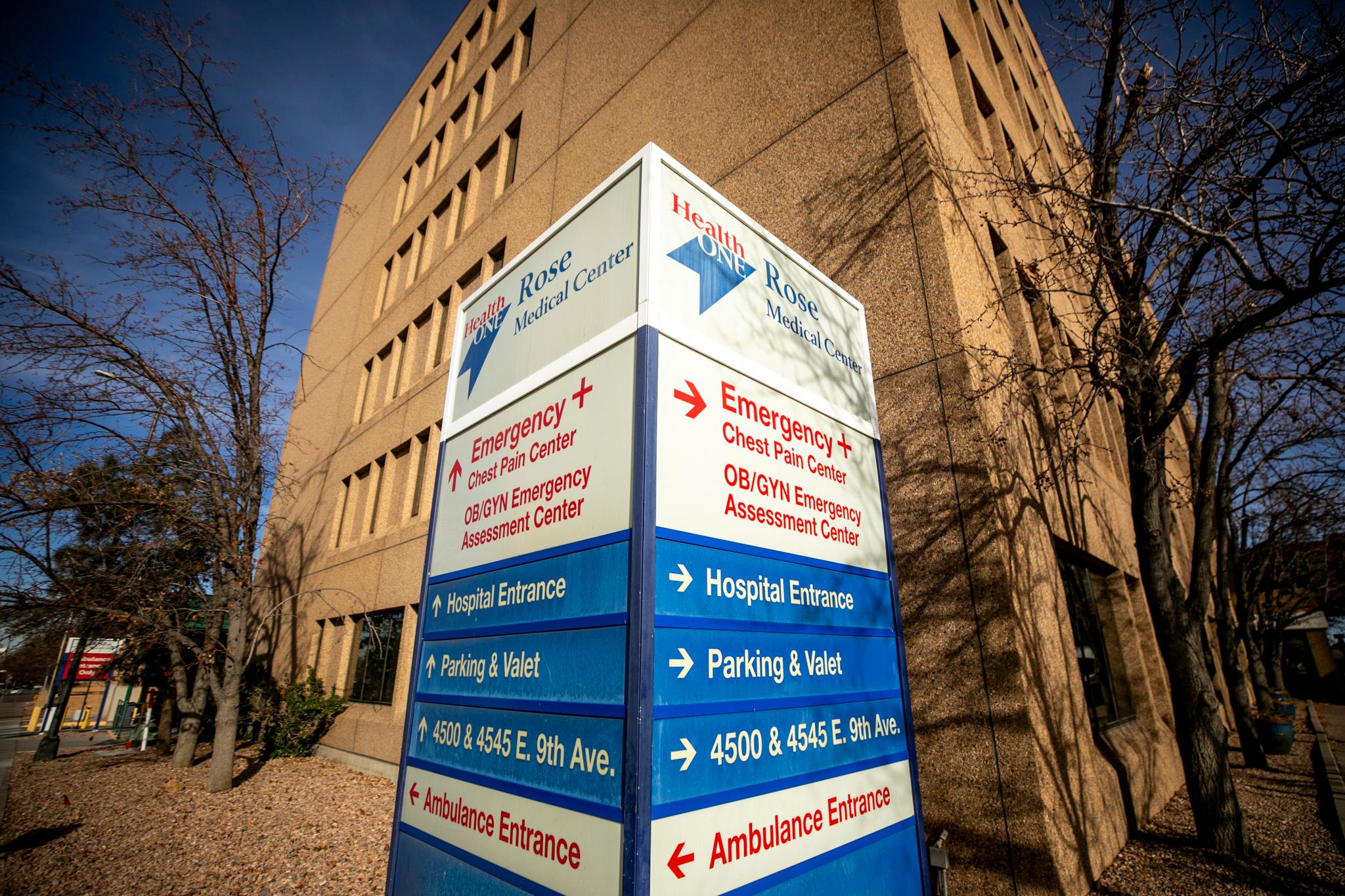A Denver woman who gave birth at Rose Medical Center received a state-mandated syphilis test. The bill to her insurance company, Cigna: $8,652.39.
“I didn't know I was receiving the treatment,” she said.
After seeing the bill, the woman assumed the amount was a mistake. After all, her entire delivery invoice was just over $31,000 to her insurance. The single syphilis test was by far the greatest cost on the itemized list, surpassing even room and care.
The extraordinarily expensive test had no direct cost to the new mom, since it was charged to insurance and she had met her $4,000 deductible. But she wondered: How could a syphilis test make up more than a quarter of her birth’s supposed cost?
“I just felt like that was wrong, and I didn't know if my [employer] was footing the bill for that, and if that would raise the premium,” she said.
The woman, who declined to use her name for this story out of fear of retribution from Cigna, Rose Medical Center and her employer, was baffled. She reached out to Denverite for help understanding the price of the test.
We reviewed her invoice and tried to understand why the bill was so high.
As we found, syphilis tests on the open market are far cheaper. At Denver Health, for example, you can get tests for a slew of sexually transmitted infections, without insurance, for between $20 and $90. Other hospitals charge in the hundreds of dollars or less for the same service, according to the state’s transparency tool.
Ari Gottlieb, a health insurance consultant, said that while the cost is “preposterous,” there might be an explanation. The insurer likely paid only a fraction of the amount charged by the hospital.
Or it’s possible that the insurer and the hospital have agreed to an overall cost for labor and delivery. For whatever reason, they pushed a large amount of that cost onto the line item for the syphilis test.
But it’s a perfect example, he said, of how difficult it is to understand what’s driving costs in a complex and opaque health care system.
“This happens constantly. It’s part of why our health care system’s broken,” Gottlieb said.
The cost breakdown
Rose Medical Center charges between $6,790.39 and $20,445.12 to private insurance companies for syphilis tests, according to Rose spokesperson Kelli Petersen.
By comparison, none of the hospitals in Colorado’s Price Transparency Tool list a cost of more than $200 for a syphilis test.
The hospital does offer discounted care, including significantly reduced lab fees, for those individuals who qualify. Rose provides patients with information about that. Additionally, it’s common for insurers to negotiate rates that are significantly lower than hospitals’ “chargemaster” price.
“Every facility has their own charges based on factors like the cost of providing this service, staff salaries, equipment costs, and market considerations,” Petersen wrote Denverite.
Petersen noted, again, that the patient did not personally pay $8,652.39 for the test.
“This was the total cost of the test prior to insurance contractual adjustments,” Petersen explained. “What the patient pays out of pocket is based on their insurance and probably pretty comparable to what these other entities are charging out-of-pocket.”
Petersen said Rose’s pricing is competitive. It's based on the health status of the patient, the physician’s expertise and the technology used to provide care.
What was Cigna’s response to the high charge?
Madeline Ziomek, a spokesperson for Cigna, wrote in an email that the company could not comment on the specific fee it paid without knowing the patient’s identity.
The company declined to share information about what it actually pays for syphilis tests to Rose and other providers.
Cigna also declined to speak generally about how it negotiates prices with hospitals and what factors it considers.
“We are committed to ensuring patients have access to the quality health care they need as affordably as possible, and we negotiate with hospitals to try to achieve reasonable rates for patients and health plans,” Ziomek wrote.
Is an $8,652.39 syphilis test reasonable?
Adam Fox, the deputy director of the consumer advocacy group the Colorado Consumer Health Initiative, reviewed the patient's invoice from Rose.
“The charges that they are levying for, really all of the lab tests for this individual, are severely inflated from what, say, Medicare pays for those same tests,” he said.
Rose charged Cigna more than 635 times the cost that Medicare pays for syphilis tests. Medicare pays hospitals $13.24 for syphilis tests. (Medicare is the federal health insurance program for seniors and people with disabilities.)
“There's no clear rationale for that,” Fox said.
To break even, on average, a hospital would charge 157 percent of what it would pay Medicare to private insurers, Fox said. Had that been the case, Rose would have charged Cigna under $21 for the syphilis test.
Is Rose Medical Center involved in some unique form of price gouging?
“Nope,” Fox said. Inflated prices are the norm. Hospitals go beyond just breaking even. They typically charge about 257 percent of what they would pay to Medicare to private insurers.
“I think what this comes down to is healthcare is now treated as a business,” he added. “Even ‘nonprofit’ entities are in the business to make money, increase revenue and grow, not necessarily bearing in mind how that serves their communities.”
How do high prices for insurance companies affect consumers?
“It affects the consumers through higher premiums,” Fox said. “It affects them through higher out-of-pocket costs.”
Last year, individuals purchasing their own insurance saw a nearly 10 percent increase in premiums, according to CCHI. In the coming year, individuals will see just over a 6.1 percent increase. Small businesses will see just over 7 percent increase.
“Our healthcare system is so enormously complex, it is incredibly difficult to navigate, for your average human being. And even people who know the system well, it can be completely baffling,” Fox said. “And we see hospitals, insurers and pharmaceutical companies, all of them, in some respect, use that to their advantage, to get more money.”
Gottlieb said that opaque and illogical-seeming bills are only building frustration for consumers.
“This stuff makes no sense and it’s crazy,” he said. “The entire system is just broken in the entire sense and insurers get the blame.”
Colorado has enacted some policies to mandate transparency in reporting costs.
But “because of the complexity of our healthcare system,” Fox said, “a lot of the tools that we've created so far don't do a terribly good job of controlling the underlying costs.”
A $8,652.39 charge for a syphilis test? That’s how the system works.
Andrew Kenney contributed to this report.










